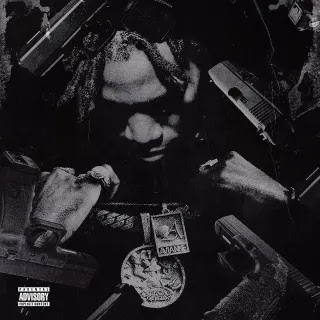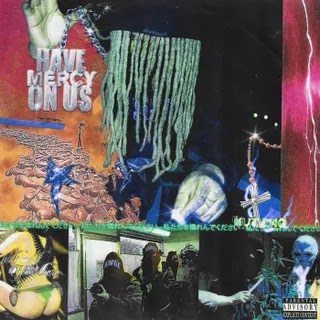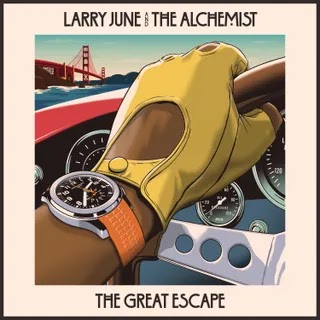Bored by the status quo and excited by everything he hasn’t tried yet, the Queens rapper is unafraid to take risks and get weird on his latest EP.
When it comes to rapping, Homeboy Sandman shares much in common with Bruce Lee’s Jeet Kune Do, a martial arts philosophy that sees no way as a way and having no limitations as a limitation. While Sand is a prolific, technically gifted MC, it’s difficult to draw a throughline between his dozens of releases; and after 10 years in the rap game, it’s apparent that it’s a feature, not a bug. Like Lee, his form is no form. Infinitely adaptable and stylistically unpredictable, he’s hard to pin down as an artist but also sometimes tough to follow. Perhaps this is why commercial success—even at a modest, independent level comparable to his contemporary and frequent collaborator Aesop Rock—continues to evade him.
Sandman seems quite aware of this, and on his latest EP, Anjelitu, he places himself at a crossroads. In a statement shared with the project, he said he wrote half of its songs “when my energy was either headed in the wrong direction or already there.” The EP’s title is a portmanteau of his childhood nickname Angelito (he was born Angel Del Villar II) and the taijitu, the famous Chinese symbol for yin and yang. The adversarial relationship between the songs on the record—and broadly, his discography—helps illuminate this inward-gazing perspective. Bored by the status quo and excited by everything he hasn’t tried yet, Sand is unafraid to take risks and get weird, with understandably mixed results.
At his best, Sandman revels in forcing listeners to confront uncomfortable truths. “No Beef,” a veganism screed that presents a compelling argument against eating red meat, exemplifies this. The wordplay is more direct than clever, but Sand wields a remarkable internal metronome, jumping in and out of the pocket for effect without ever losing the beat. He’s armed with a different flow on almost every track. “Go Hard” sports a nimble start-stop stutter that would twist the tongues of lesser rappers, and Sand’s rapid-fire delivery on “West Coast” presses each new bar up against the last, barely coming up for air yet always in control. He’s still capable of dropping absurd one-liners (“Raving and ranting, I’m like Fred Hampton/Chewing on rattlesnake plantain,” he raps on “Go Hard”) and of effortlessly switching rhyme schemes, but it’s the delivery here that’s most impressive.
Aesop Rock, Sand’s collaborator and producer of all of Anjelitu’s six tracks—together known as Lice—brings consistency and levity to the admittedly dualistic project. The first five tracks are crafted using a similar palette, built around bare drums, guitars, and bass, peppered with analog electronics and keys. And while the sparse compositions offer a solid base for Sand to experiment stylistically, when juxtaposed with the lush production of the EP’s final track, “Lice Team, Baby,” they’re somewhat lacking. The song features a verse from Aes and would sound more at home on any of the Lice EPs than here. But it’s also evidence of how his collaborations with Aes bring out the best in Sand. Some of the strongest verses in his catalog come with Aes on the track; homed in on their target, they’re focused but unafraid to be silly, with wit as sharp as their skill.
















0 comments:
Post a Comment